What is Data Marketing Communications?
The discipline of Data Marketing Communications (DMC) is often mistaken for the field of data science, or statistical analysis. In fact, DMC is not a heavy-mathematics program, nor is it about a deep analysis of raw statistics involving complicated software programs. Here is the definition of Data Marketing Communications from West Virginia University’s Reed College of Media:
Data Marketing Communications (noun)
[Da-ta | Mar-ket-ing | Com-mu-ni-ca-tions]
DEFINITION: Data Marketing Communications (DMC) is an emerging discipline that takes data and applies intelligence and strategic analysis to provide professional communicators with key insights to develop and refine marketing communication activities.
In other words, DMC equips marketing communication professionals with the skills to interpret data in order to drive messaging, assess metrics, measure productivity, increase ROI, and develop integrated marketing strategies. This emerging field focuses on four types of data:
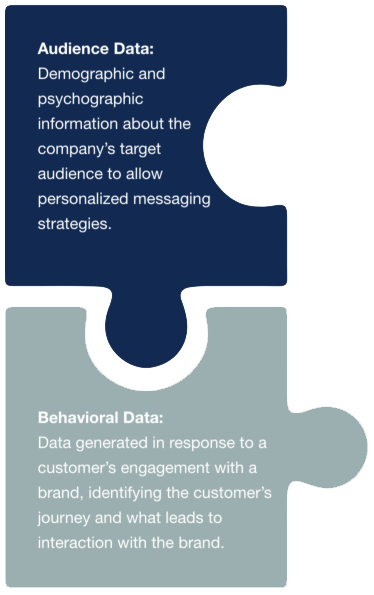
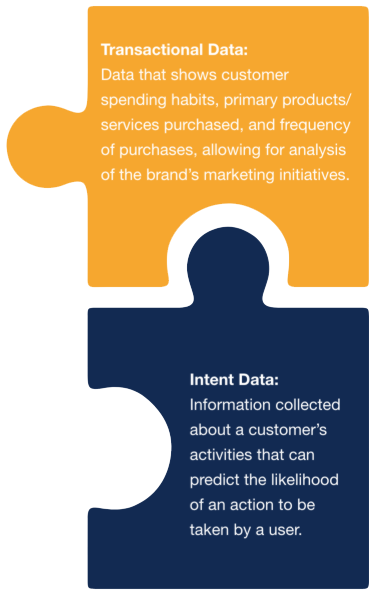
Marketing professionals who study Data Marketing Communications are better able to navigate the rapidly-evolving world of marketing — an industry that demands smarter insights and better results across a variety of media channels.
Current Challenges for the Marketing Industry
Marketers today work in a world filled with emerging technologies, increasingly-intelligent analytic tools, and an unprecedented amount of user information. But the rate of innovation has resulted in a marketing industry filled with experimenters — not experts.
Here are just a few of the common challenges marketing communications professionals face today:
Too Many Choices:
So many possible channels are available for communication that marketers struggle to make the best choices regarding strategy, tactics, and dollars invested.
Too Many Metrics:
Identifying and understanding the metrics that matter most has become increasingly difficult.
Increased Noise:
Users are being overwhelmed by an explosion of media, resulting in an overly crowded and highly competitive marketplace.
Yesterday’s Tactics Don’t Work Today:
The shelf-life of marketing “best practices” continues to decrease, as companies realize their old messages no longer resonate.
Integrated Marketing is More Difficult:
With more channels, devices, and media formats, maintaining integrated marketing communications has become more difficult.
Lack of Understanding Across Disciplines:
More than ever, companies need people who understand both the art and science of marketing in strategy, creative, copy, tech, operations…all the way up to senior management.
Attribution Confusion:
Calculating true ROI is difficult because marketers can no longer attribute credit to a single activity when buyers are engaging with multiple channels of communication.
The Data Needs an Interpreter
The lack of data interpretation results in the absence of strategic, data-driven marketing activities. When faced with these industry challenges, too many communications professionals stick with what they know. The problem here is that yesterday’s strategies and tactics just aren’t as effective today.
The Data Marketing Communications discipline develops educated professionals by teaching them how to interpret the data behind the marketing to make better decisions. It is based on the fact that data exists in every stage of the marketing process.
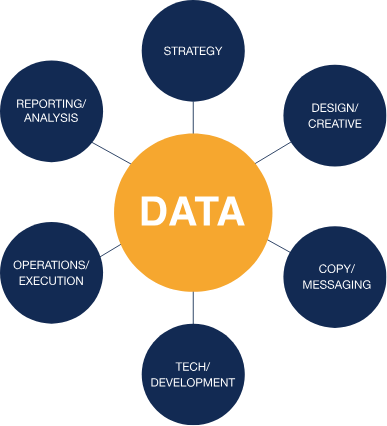
Using Data Helps to Answer Common Marketing Questions:
-
How does user-behavior data impact the design of the website?
-
What social messaging is most effective at generating conversions, not just interactions?
-
Which SEO strategies will have the biggest impact on web traffic?
-
How should the developers optimize emails for mobile experience?
-
Which platforms are seeing the highest customer transactions, and why?
-
How should the marketing strategy be adjusted to account for the new audience profiles?
These are just a few examples of everyday challenges marketing communication professionals face — all of which require a comprehensive understanding of the intersection between data and marketing communications.
Request More Information
If you have questions about what it would mean for you to pursue the Data Marketing Communications graduate degree at WVU, we encourage you to request more information today!
Request More Information
FILLING THE TALENT GAP
Beyond the common marketing challenges above, the biggest challenge in the marketing industry is filling the talent gap. There is a significant gap today between what people actually know vs. what people need to know in the marketing communications industry.
To be a leader in today’s competitive marketing landscape, you must have the necessary skills to harness the power of data to make more informed, data-driven decisions across every aspect of a marketing campaign. Without understanding the impact of data to improve strategic marketing decisions, marketing professionals run the risk of being redundant and being replaced by professionals who have the skills to implement strategic action plans that are rooted in data.

Emerging Careers for Data-Driven Marketers
As the marketing communications landscape increasingly recognizes the need for professional communicators who can apply data and intelligence to marketing campaigns, new careers are emerging and not-so-new careers are seeking marketers who understand the importance of Data Marketing Communications in all facets of marketing communications.
Below are 10 rapidly-growing job titles designed for marketing communications professionals who understand the power of data:
1. Innovation Manager
An innovation manager develops ideas, handles newly-implemented projects, and creates processes so that innovation can thrive in organizations.
2. Digital Transformation Specialist
These specialists help organizations transform their processes, competencies, and models to fully leverage technology and digital tools.
3. New Technology Specialist
Professionals working in a new technology specialist role must keep up with trends and must be up-to-date on all that is happening in the tech world and how it affects security.
4. Digital Brand Manager
Digital brand managers help create, implement, and evaluate the digital vision and strategy for company brands across all digital channels.
5. Digital Strategist
Strategists working in digital media help brands leverage data from IoT devices and create wins from interactions between humans and machines.
6. Chief Experience Manager
CXMs create customer-centric strategies which help companies to deliver and ensure exceptional customer experience.
7. Marketing Technologist
Marketing technologists develop strategies as well as test and select technology that powers marketing initiatives.
8. Revenue Marketing Manager
These managers transform marketing from a cost center to a revenue center by adopting financial accountability and leading the pivot to customer centricity.
9. SEO Strategist
Strategists work to refine an organization’s approach to SEO as Google’s algorithm evolves and as an organization’s content strategy changes.
10. Content Marketing Specialist
Specialists working in content marketing are responsible for creating and distributing valuable, relevant content to a target audience.
Job Growth & Salary Info for the Marketing Communications Industry
Students who graduate with a specialized marketing communications degree — like Data Marketing Communications — are prepared to succeed in a variety of employment positions. Here are just a few examples of the projected growth rates for employment within the marketing industry.



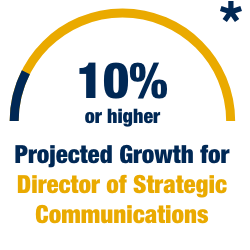
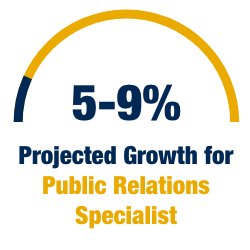
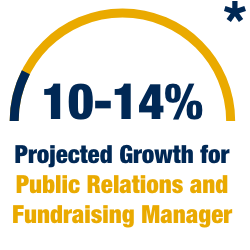
According to the Bureau of Labor Statistics, professionals working in marketing at a senior level make an average of $132,230 a year. In 2016, the lowest 10 percent earned less than $68,490, and the highest 10 percent earned more than $208,000.

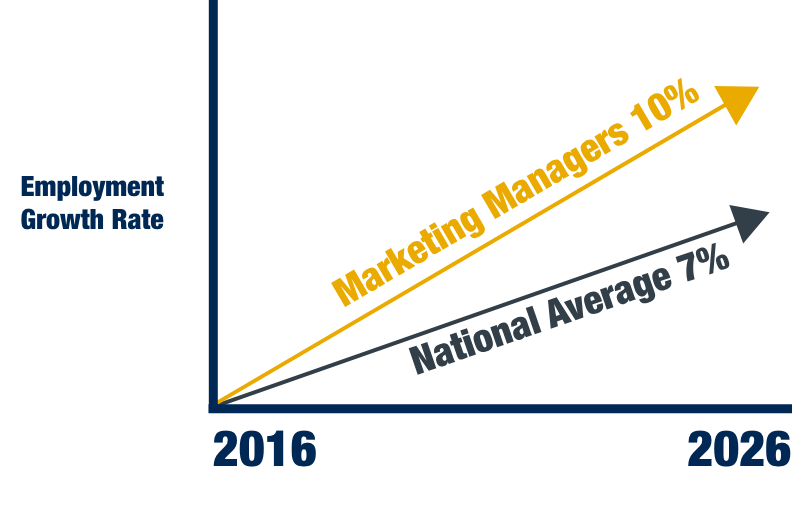
The wave of digital channels and shifting consumer behavior has forced marketers to collect and analyze data to thrive. Organizations that embrace data collection and evolve with technology will become the frontrunners in the marketing landscape today and in the future.
— Dr. Michael Brumbage, Assistant Dean of Public
Health Practice and Service in WVU’s School of Public Health
FREE RESOURCE
DOWNLOAD WVU’S DMC GUIDE
A Guide to Data Marketing Communications
This guide is for both experienced marketing professionals and aspiring learners who recognize the need for data-driven strategies in content marketing and who wish to establish themselves as real leaders in the field by learning how to use data to achieve results.
Download the Guide
WHO SHOULD STUDY DATA MARKETING COMMUNICATIONS?
Because data exists at all stages of the marketing campaign process, learning the discipline of Data Marketing Communications is relevant for a variety of people. At
WVU, we attract agency professionals and in-house marketing managers, and ones that work in both corporate and nonprofit organizations.
IF YOU ARE A…
Content marketer
Social media strategist
Digital advertising manager
Account manager
Marketing consultant/strategist
Designer/Creative Director
Copywriter/editor
CMO/Director of Marketing
SEO/SEM specialist
IF YOU ARE INTERESTED IN…
Data-driven marketing
User experience platforms
Artificial intelligence
Social media tactics and analysis
Developing strategic marketing plans
Integrated marketing communications
Working in an agency environment
Working for an in-house marketing team
Using martech to reach customers
WVU’s Data Marketing Communications program is designed for professionals who are passionate about the marketing communications profession — we bring together those who want to establish themselves as real leaders in the field by learning how to use data to achieve results. They understand how technology and users are changing and are dedicated to learning the skills needed to make data-driven decisions in order to measure productivity and increase ROI.
Our students generally fall into one of these three groups:

Organizations Using Data to Innovate
As more organizations recognize the need for data-driven marketing campaigns, marketers are working alongside data specialists who collect data at all stages of the marketing process. Marketing communications professionals then use that data to predict future behaviors, make data-driven decisions to attract and retain consumers, and measure outcomes to determine what’s successful — and what isn’t.

For instance, consider the startup clothing service Stitch Fix, which landed on Fast Company’s World’s 50 Most Innovative Companies 2019 list. Stitch Fix CEO Katrina Lake recognized a lack of data application when it came to their marketing and business model, so she chose to augment their strategy “one data point at a time.” With a radical data-driven strategy, Stitch Fix began using a “mix of algorithmic and human curation” to holistically understand clients’ personal styles and interests and then placed them with personalized, delivered boxes of clothing called “Fixes.”
Stitch Fix is dedicated to using data across every aspect of its business model in order to delight and retain consumers. And since implementing this data-driven strategy in 2017, Stitch Fix has generated $1.2 billion in 2018 with earnings of $45 million and took in $366 million in its first quarter of 2019.

Ellen Latham, founder of Orangetheory Fitness, uses data to ensure success across all franchises. In a 2018 Forbes article, Orangetheory Fitness CFO explains how data has played a role in the brand’s success:
“Our business intelligence (BI) portal… utilizes data in real time to provide analytics about each franchisee’s studio’s performance and member behavior. This empowers franchisees to make informed decisions to drive profits. For example, historical data shows us that members with low utilization rates have a high probability of cancelling, resulting in a short length of stay with the brand. Our BI reporting can spotlight these low utilization members, allowing our owners to proactively reach out to understand how we can better meet their needs and get them back into the studio.”
Armed with a strategic and polished data-driven marketing and business model, Orangetheory Fitness exists as the second-fastest growing woman-owned company in the United States.
SUBSCRIBE TO MARKETING COMMUNICATIONS TODAY
Here at WVU’s Reed College of Media, we provide a closer look at the intersection of integration and data-driven communications. Subscribe to our weekly blog and join a community of other marketing communications professionals in reading and sharing ideas!
Subscribe to the Blog
Data Marketing Communications at WVU
West Virginia University’s Master of Science in Data Marketing Communications is the nation’s pioneer graduate degree that focuses on the effect of data on marketing communications. The program addresses the critical need for professional communicators who want to understand how to use data to drive strategic messaging and marketing communications campaigns that engage and influence target audiences.
The DMC program seeks to produce graduates who are mindful of data and marketing communications so that they can bridge the significant talent gap in the marketing communications industry.
The DMC Curriculum
The 30-credit hour program is offered exclusively online. The curriculum requires students to take an introduction course, eight core courses, and a capstone course.
Data Marketing Communications is an emerging discipline that takes data and applies intelligence and strategic analysis to provide professional communicators with key insights to develop and refine marketing communications activities.
 TUITION
TUITION
In 2019, tuition was cut -16% to $24,600
OUR STUDENTS ARE
...AND THEY BECOME:
Innovation Managers
Digital Transformation Specialists
New Technology Specialists
Digital Brand Managers
Digital Strategists
Chief Experience Managers
Marketing Technologists
Revenue Marketing Managers
SEO Strategists
Content Marketing Specialists
 REQUIRED COURSES
REQUIRED COURSES
Earn your DMC degree in 1.5 years.
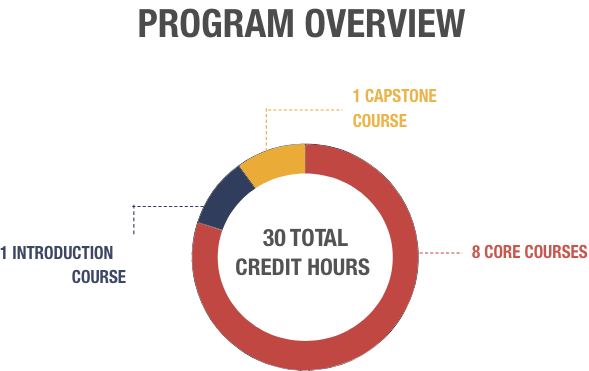
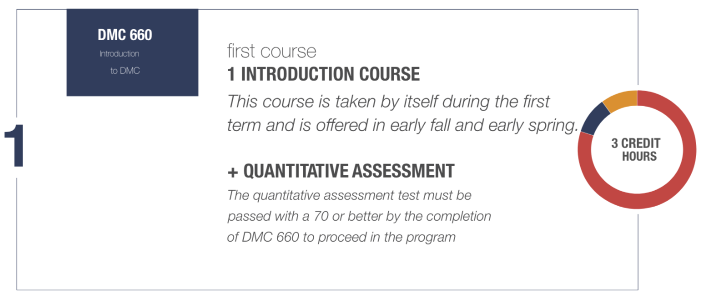
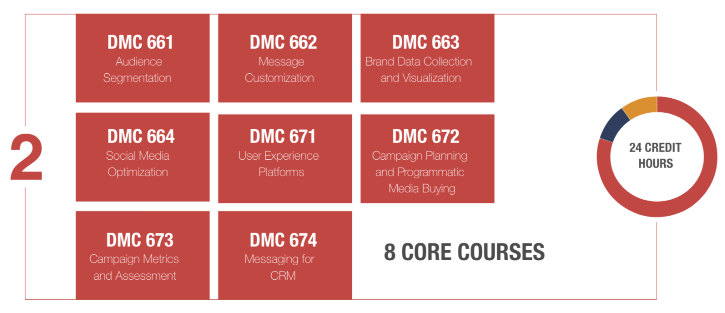
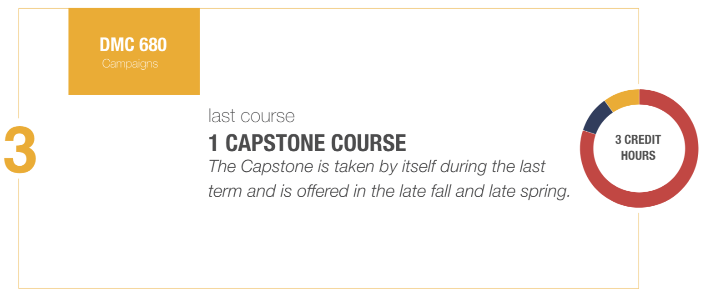
Core Courses
The four blocks of core courses represent the fundamental characteristics of the program: Audience, Data, Platforms, and Assessment. The pairing of core courses into thematic blocks allows students to examine the relationship between quantitative data, integrated marketing communication strategies, and the decisions informed by that data.
Audience Block:
DMC 662 - Message Customization – (Applications and Strategies Course 1)
This course explores how data allows marketing communicators to customize messages to target audiences as small as a single consumer.
Data Block:
DMC 664 - Social Media Optimization – (Applications and Strategies Course 2)
This course examines how data from the social media sphere can be leveraged to ensure marketing communications efforts reach their intended audiences efficiently and effectively.
Platforms Block:
DMC 671 - User Experience Platforms - (Quantitative Course 3)
This course explores the myriad of database platforms available, as well as how data can be analyzed to develop specialized and highly targeted marketing communications messages.
Assessment Block:
DMC 673 - Campaign Metrics and Assessment – (Quantitative Course 4)
This course explores how data can be used to assess the success, failure or need for modification in marketing communications campaigns.
Capstone Course
The three-credit capstone course brings everything together that DMC students have learned into one real-world project. In this course, students develop a cohesive marketing communications campaign that demonstrates a conceptual mastery of data-driven marketing communications for a real-world client. The capstone is a valuable asset for DMC students and gives DMC graduates an advantage over their competitors.
Program Outcomes
West Virginia University’s ultimate goal is to prepare graduates of the Data Marketing Communications master’s program for advancement — financially, professionally, and personally. In addition to many other valuable skill sets, DMC students graduate with the knowledge and skills needed to:
-
Develop cohesive marketing communications campaigns that demonstrate a conceptual mastery of data-driven marketing communications.
-
Evaluate measurement tools in order to determine campaign effectiveness.
-
Know which characteristics make various media channels, such as mass media, social media, and B2B communications, effective for communications initiatives.
-
Make the connection between creative output and measurable client goals, and better understand how the creative process can be influenced by data.
-
Interpret data in order to produce strategies to accurately target messaging, content, and offers.
-
Breakdown complex data and communicate it to clients and present it in a visual manner.
Area of Emphasis
Data Marketing Communications students have the opportunity to add an Area of Emphasis (AOE) to their graduate degree. The Integrated Marketing Communications specialization is intended to prepare DMC students to develop the skills required to manage integrated marketing communications campaigns in a professional setting. This specialization broadens your knowledge base, making you more competitive in the job market. Included on your transcript once you graduate, the IMC specialization demonstrates your level of expertise in data-driven marketing and integrated marketing communications.
Faculty Thought Leadership
The DMC program is taught by a diverse faculty — from marketing directors to academics to entrepreneurs — who are recognized as experts in their fields. They are professionals from the nation’s capital, the Big Apple, and Silicon Valley. They are practicing what they preach every day and bringing the world of Data Marketing Communications into your virtual classroom.

As marketing is becoming more and more quantifiable and
measurable, graduates will have the credentials and the confidence to sit at the strategy table and prove their worth.
—Cyndi W. Greenglass, Founding Partner and Senior Vice President Strategic Solutions at Diamond Communication Solutions
(DMC 660: Introduction to Data Marketing Communications)
(DMC 680: Capstone: Campaigns)

I’m passionate about advancing the marketing communications profession and helping students build data-driven skills required to meet the evolving demands of business.
—Susan Emerick, Principal & Founder of Brands Rising
(DMC 664: Social Media Optimization)

We are a program that, from the beginning, has stressed the importance of the impact we want to have on the lives and careers of our students. We do everything in our power to ensure that all students have a valuable experience and learn skills and insights they need to be competitive.
—Chad Mezera, Assistant Dean at WVU’s Reed College of Media
DMC Students
The Data Marketing Communications graduate program attracts a wide spectrum of students, representing a variety of ages, years of professional experience, locations, and undergraduate disciplines. At the Reed College of Media, we are dedicated to giving our students the opportunity to network with faculty and engage in one-on-one interaction with classmates; for this reason, there is a maximum of 20 students in each DMC course.
![]()
29.5
AVERAGE AGE OF CURRENT DMC STUDENTS
![]()
6.25
AVERAGE YEARS OF PROFESSIONAL EXPERIENCE FOR CURRENT DMC STUDENTS
![]()
3.195
AVERAGE UNDERGRADUATE GPA OF CURRENT DMC STUDENTS
Current DMC students are in 12 states and Washington, D.C.
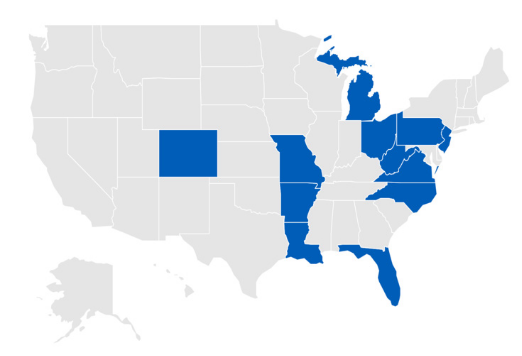
ADMISSIONS & APPLICATION INFORMATION
At West Virginia University, we recognize that people who are passionate and care about the outcome of their graduate school experience have a greater level of grit and determination to get through the parts that are difficult or more ambiguous.
As a WVU graduate program, the Data Marketing Communications program follows the typical graduate degree application criteria. Here is a checklist to ensure you obtain and complete all the application requirements:
Application Checklist
1. Apply with the Online Graduate Application
2. Pay graduate application fee
3. Submit 300-500 word personal statement detailing your interest in the DMC program
4. Submit résumé that illustrates professional experience
5. Request and submit official academic transcripts from degree conferring institution (other than WVU)*
6. Letters of Recommendation (Optional)
7. GRE or GMAT Scores (Optional)
8. TOEFL or IELTS scores (international students only)
*Official transcripts can be mailed to the WVU Office of Graduate Admissions or electronically sent to graduateadmissions@mail.wvu.edu.
CONNECT WITH WVU
West Virginia University is accredited by the Higher Learning Commission. The stimulating community of expert faculty and passionate learners at WVU creates an environment that welcomes your desire to grow, to learn, and to add to the growing body of knowledge in your field. If you want more information about graduate admission requirements, financial aid, or to learn more about the graduate application process, visit WVU’s Data Marketing Communications website. We can’t wait to hear from you.
WVU Contact Information
Data Marketing Communications Admissions
West Virginia University
Connect with the Enrollment Team
wvudmc@mail.wvu.edu
304-293-6278
WVU Reed College of Media
P.O. Box 6529 | Morgantown, WV 26506-6529








